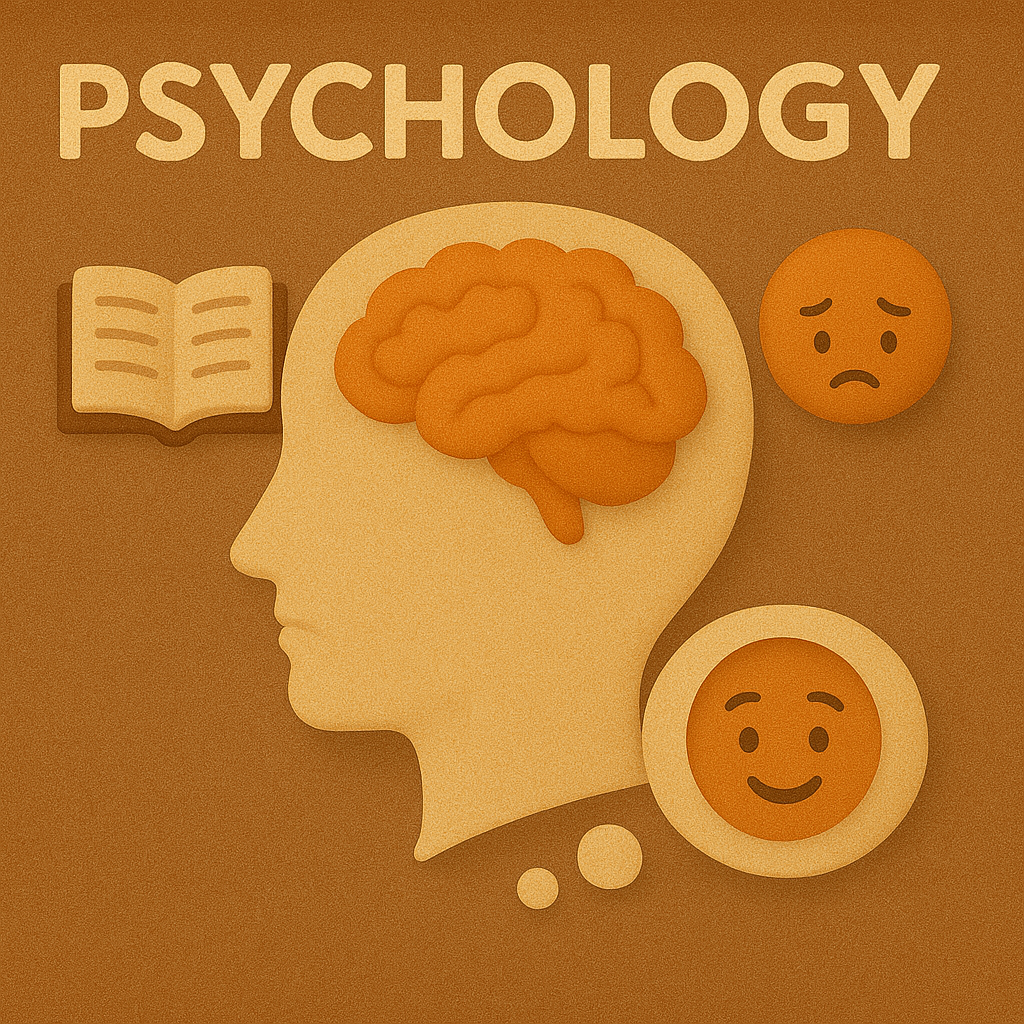Psychology
Definition
The term "psychology" describes the scientific study of the mind, behavior, and mental processes, exploring how individuals think, feel, and act.
Parts of Speech
- Noun
Pronunciation
American English
- IPA Pronunciation: /saɪˈkɑː.lə.dʒi/
- Respelling: sy-KOL-uh-jee
British English
- IPA Pronunciation: /saɪˈkɒl.ə.dʒi/
- Respelling: sy-KOL-uh-jee
Etymology
The word "psychology" originates from the Greek "psyche," meaning "soul" or "mind," and "logos," meaning "study" or "discourse." It entered English in the late 17th century as the study of the soul, later evolving to its modern meaning in the 19th century.
Derivatives
- Psychologist (noun)
- Psychological (adjective)
- Psychologically (adverb)
- Psychologize (verb)
- Psychopathology (noun)
Synonyms
- Behavioral science
- Mind study
- Neuroscience (related)
Antonyms
- None
Usage
The term "psychology" is widely used in academic, clinical, and everyday contexts. For example: "He is studying psychology to understand human behavior," or "The marketing team applied psychology to design effective advertisements."
Related Terms
- Sociology: The study of society, social relationships, and institutions.
- Psychiatry: A medical field specializing in mental health and disorders.
- Cognition: The mental processes involved in acquiring knowledge and understanding.
Detailed Definitions
Noun
- The scientific study of the mind and behavior: Refers to understanding mental processes and actions.
- Example: "Psychology examines how people learn and process emotions."
- The mental characteristics or attitude of a person or group: Refers to how individuals or communities think and behave.
- Example: "The psychology of the team was focused on success."
- A specific field or theory within psychology: Refers to specialized areas such as clinical psychology, cognitive psychology, or social psychology.
- Example: "He is researching developmental psychology."
psychology



🇨🇳 Mandarin
- 心理学 (xīnlǐxué): Psychology
- IPA: /ɕin.li.ɕɥe/
- Respelling: sheen-lee-shwair
🇮🇳 Hindi
- मनोविज्ञान (manovigyaan): Psychology
- IPA: /mənoʊvɪgjɑːn/
- Respelling: muh-no-vi-gyan
🇪🇸 Spanish
- Psicología: Psychology
- IPA: /psikoloˈxia/
- Respelling: psi-co-lo-hia
🇫🇷 French
- Psychologie: Psychology
- IPA: /psikɔlɔʒi/
- Respelling: psi-co-lo-jee
🇦🇪 Modern Standard Arabic
- علم النفس ('ilm al-nafs): Psychology
- IPA: /ʕilm ælnæfs/
- Respelling: ilm al-nefs
🇧🇩 Bengali
- মনোবিজ্ঞান (monobigyan): Psychology
- IPA: /mɔnobidʒɲan/
- Respelling: moh-no-bid-nyan
🇷🇺 Russian
- Психология (Psikhologiya): Psychology
- IPA: /psʲɪxɐˈlogʲɪjə/
- Respelling: psi-ho-lo-gi-ya
🇵🇹 Portuguese
- Psicologia: Psychology
- IPA: /psikoloˈʒiɐ/
- Respelling: psi-co-lo-zhee-a
🇮🇩 Indonesian
- Psikologi: Psychology
- IPA: /psikologi/
- Respelling: psi-ko-lo-gi
🇩🇪 German
- Psychologie: Psychology
- IPA: /psyˈçoloˌgi/
- Respelling: psi-cho-lo-gie
🇯🇵 Japanese
- 心理学 (Shinrigaku): Psychology
- IPA: /ɕinɾiɡaꜜku/
- Respelling: sheen-ri-ga-ku
🇻🇳 Vietnamese
- Tâm lý học: Psychology
- IPA: /tâm li˨ˀ˧ hɔk̚˦ˀ˥/
- Respelling: tam-lee-hok
🇰🇷 Korean
- 심리학 (simlihak): Psychology
- IPA: /ɕhim.li.hak̚/
- Respelling: shim-lee-hak
🇹🇷 Turkish
- Psikoloji: Psychology
- IPA: /psikoɫoji/
- Respelling: psi-ko-lo-ji
🇵🇰 Urdu
- نفسیات (nafsiyat): Psychology
- IPA: /nəf.siː.jɑːt/
- Respelling: nef-see-yat





